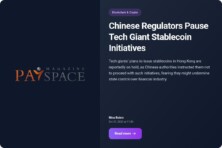Chinese citizens and businesses emerge from a three-year isolation as China lifts zero-COVID policies imposed back in 2019. Experts across multiple industries are concerned about the impending impact this will have on global health and economy.

Chinese citizens have lived under a strict lockdown, including limitation of movement, regular testing, and closed borders since 2019.
Source: Unsplash
Cut off from the rest of the world since the start of the COVID-19 pandemic, mainland China finally opens sea and land crossings with Hong Kong. The end of Beijing’s strict zero-COVID policy that has been in place for three years follows multiple protests against the policy and is met with worries of resurgence in Covid cases and more.
Since the initial outbreak of the virus in 2019, China enforced frequent testing, limitation on movement and mass lockdowns. In an effort to shield the country’s 1.4bn population from the virus, the second-biggest economy in the world inevitably took a severe hit.
Now, President Xi Jingping is making an effort to re-engage Chinese economy with the global system, in a way which allows both Chinese consumers and supply-chain to emerge from the restrictions of lockdown. In seeking economic relief, China is spiking concern over global security and the impact Chinese consumers and businesses will have on the current inflation trend. Investors, however, are optimistic that the reopening will give new strength to the $17 trillion economy.
Another point of concern is the wave of new infections, triggered by those travelling to and from China. Some have already called for a reinstatement of the zero-COVID policy, which speaks more to a lack of understanding rather than a desire to solve global issues. #MaskingUp or increasing surveillance won’t help anyone, despite what opinion-havers online may say. The only way to curb new Covid cases and other spreading health issues is through education, not online fear-mongering.
While the West is concerned, families who have been separated for three years are queuing at the Hong Kong international airport.









